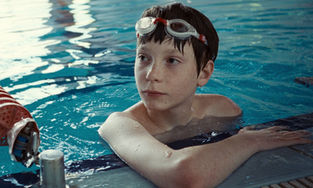'Napoleon' Review: Small Men, Big Choices & Joaquin Phoenix In Ridley Scott's Action Drama
- S.J.

- Nov 30, 2023
- 3 min read
Updated: Aug 13, 2024

Vive la farce! A descriptive term like ''biographical'' might be a bit too strong in cases like these and no revolutions will begin in the cinematic landscape but director Ridley Scott's historical action drama Napoleon will instead try to entertain you at the very least. Joaquin Phoenix stars as titular Napoleon Bonaparte himself, a French emperor and army commander, as we follow his battles and political adventures with a hint of outrageousness from 1793 to his death in 1821. We see Napoleon create a name for himself as a mastermind on battlefields, being a part of a coup that eventually leads him to be crowned emperor, ruling France with an eye for an expansion and perhaps most importantly his marriage with Joséphine (Vanessa Kirby) in which he's not quite as commanding.
Napoleon as a film is a strange beast, much like the man as well, because it's not the epic war story that you might be expecting and it's also not always clear if everyone on set was always sharing the same vision. What is true about the vision, however, is that oddly Napoleon does end up being the middle point of Scott's recent efforts in terms of impressive designs and action on the screen but still having a little bit of that absurdity that is sometimes quite dicey. Thematically Scott's farcical tone and directorial choices mostly work here, shining a spotlight on these figuratively small men's fragility as they are on a warpath year after year just because, well, they're just that bored. It is rather dumb in the end and the movie does display what seem to be intentional splashes of comedy and ridiculousness.
What is not ridiculous in any sense is indeed the action, which Scott, DoP Dariusz Wolski and the VFX as well as SFX (supervised by Neil Corbould) teams combine to stage in spectacular fashion, notably the battle of Austerlitz where the anticipation, scale and following brutality are very memorable and effective. Arthur Max's production design, Janty Yates and David Crossman's costumes and stunt personnel also deliver a solid second wave of support so the film never looks or sounds out of place. Those big battles are always clear, thunderous and imposing.
Going more in and out can certainly be Phoenix's central performance, which thankfully ultimately finds stability between pathetic and fickle during the second half, though his interactions with changeful faces of diplomats and rulers are where Scott's lack of interest in historical accuracy becomes distracting; no one is asking you to quote history books or not to take risks with a setting but sticking to enough truth can lead your actors to discover emotional sincerity—you could maybe call this emotional accuracy. Scott's projects have fallen victim to this before and it doesn't help that Phoenix is simply too old for some of the earlier material. Kirby is definitely the one who interprets it the most as Joséphine's mind games and having her own strategies to execute provide fine friction, something that the actor portrays with grace.
Since there are mostly decent elements and a few great ones, it's a real shame that David Scarpa's screenplay with Scott and editors Claire Simpson and Sam Restivo's construction of it also doesn't transmit a lot of depth or emotional frequencies. Not only does the structuring of it all highlight eras when Phoenix looks like a wrong choice to star in the film, but there's not enough ebb and flow during sequences or from one scene to another because the focus is fairly scattershot. There's really no reason why Napoleon couldn't have gone the farcical and entertaining route with a slimmer time span, which then wouldn't leave awkward spots for what look to be fully missing scenes, sequences and character arcs. The film's design leaves something to be desired, whereas the battles are really well done and Scott and his collaborators seem to be mostly intentional with what they're exposing.
Smileys: VFX, Vanessa Kirby, directing
Frowneys: Structure, editing
He's all hat.










